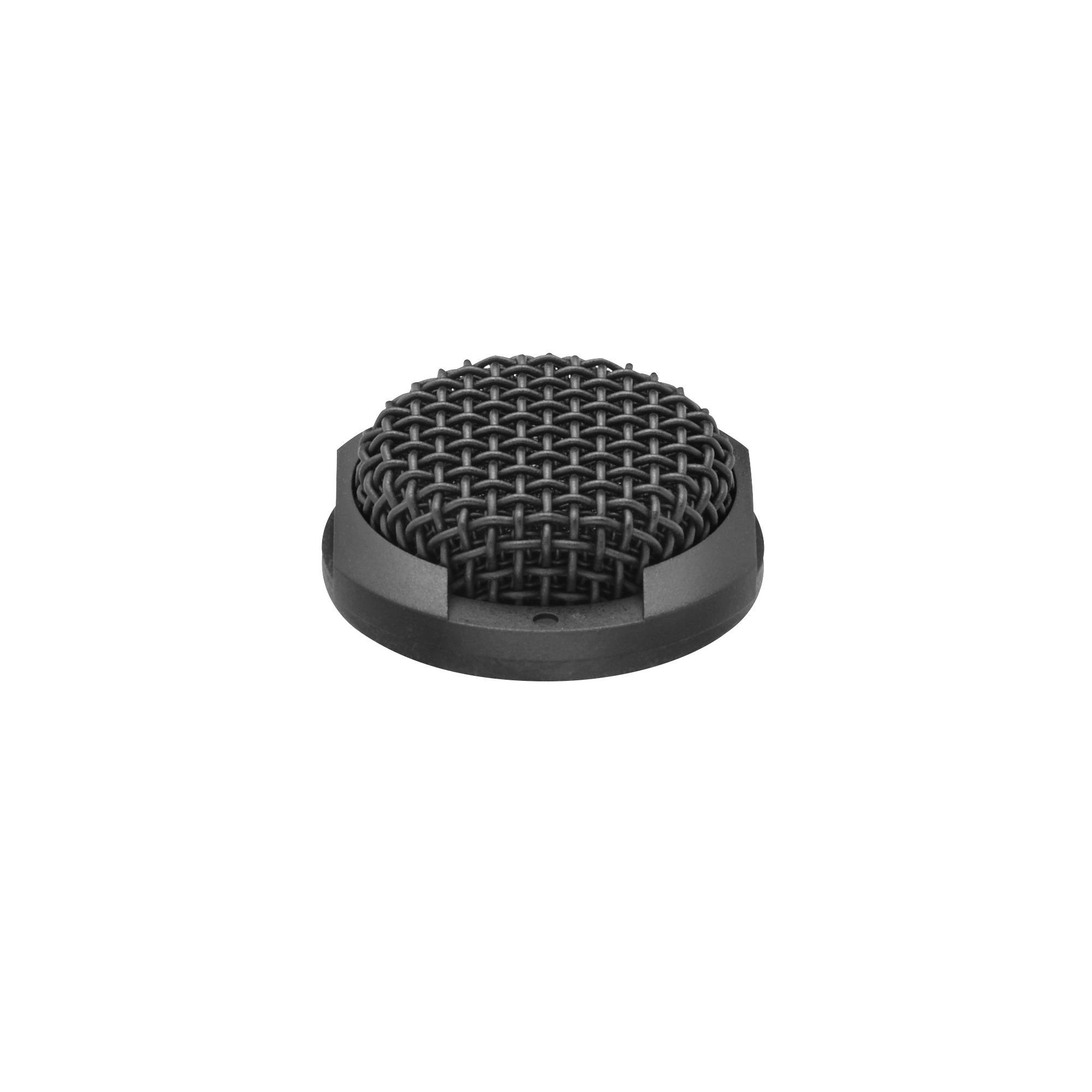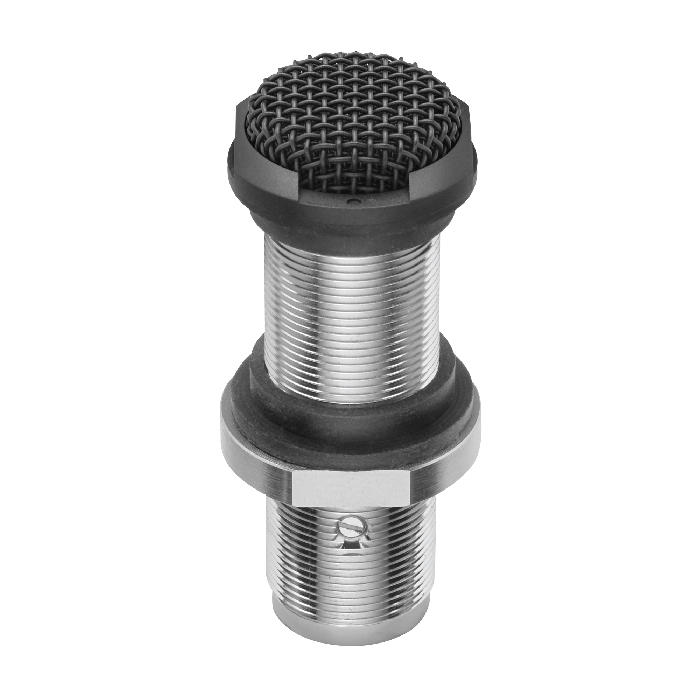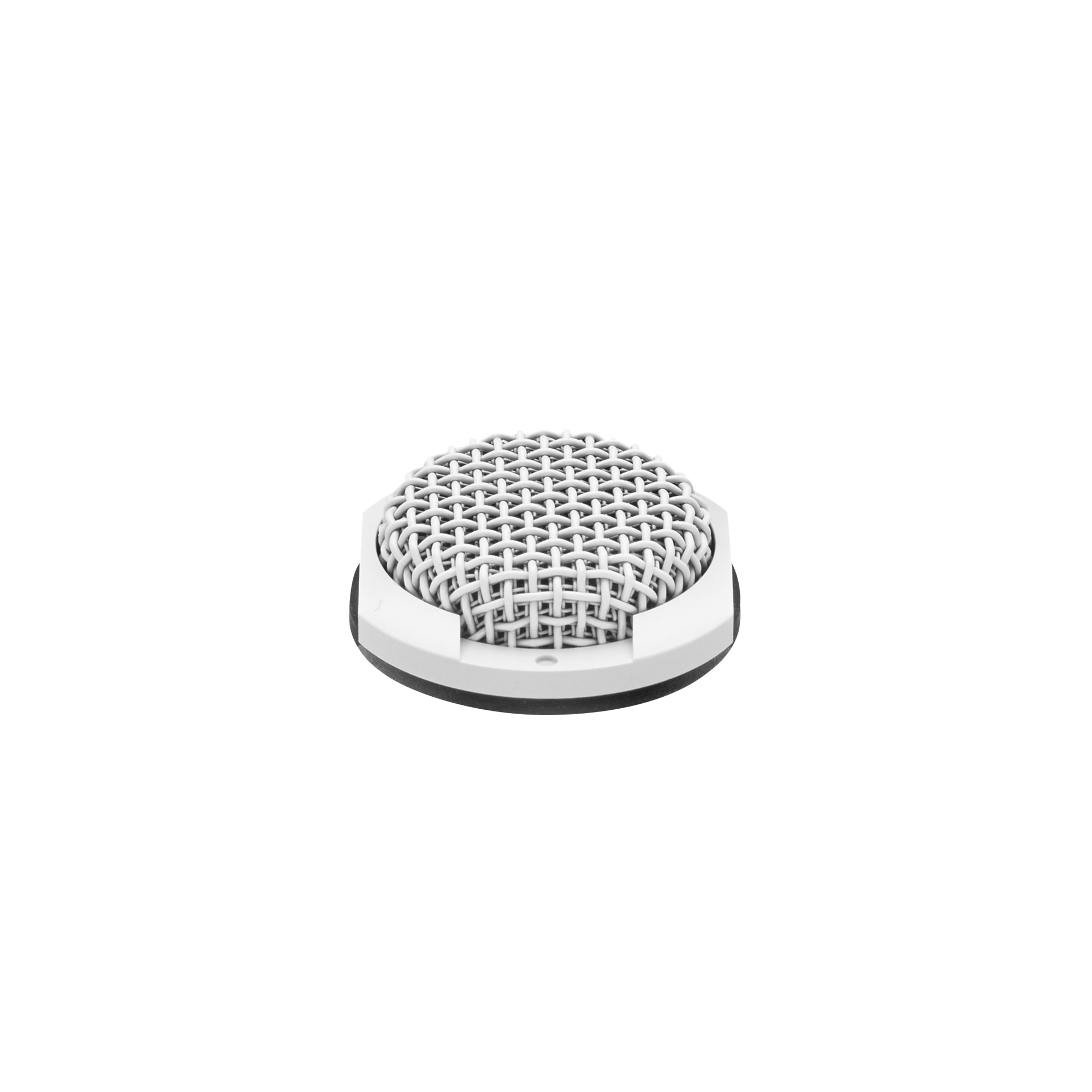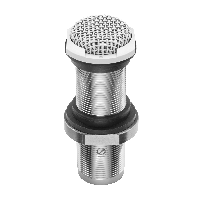
Discontinued
Cardioid Condenser Boundary Microphone
ES947
ES947
Features
- Designed for surface-mount applications such as high-quality sound reinforcement, professional recording and teleconferencing
- Low-profile element provides uniform cardioid polar pattern with 120º acceptance angle
- Mounts unobtrusively in table-tops, ceilings and wall panels
- Self-contained power module with XLRM-type output connector
- Rugged all-metal case with a two-layer steel mesh grille
- Isolators provide mechanical dampening of mounting-surface vibration
- Requires 11V to 52V DC phantom power
- UniGuard® RFI-shielding technology offers outstanding rejection of radio frequency interference (RFI)
- Available in two colors: black (ES947) and white (ES947W)
- RoHS compliant—free from all substances specified in the EU directive on hazardous substances
Specifications
| Microphones | |
|---|---|
| Element | Fixed-charge back plate, permanently polarized condenser |
| Polar Pattern | Half-cardioid (Cardioid in hemisphere above mounting surface) |
| Frequency Response | 40-12,000 Hz |
| Open Circuit Sensitivity | -42 dB (7.9 mV) re 1V at 1 Pa |
| Maximum Input Sound Level | 142 dB SPL, 1 kHz at 1% T.H.D. |
| Dynamic Range | 113 dB, 1 kHz at Max SPL |
| Signal-to-Noise Ratio | 65 dB, 1 kHz at 1 Pa |
| Phantom Power Requirements | 11-52V DC, 2 mA typical |
| Weight | 64 g (2.3 oz) |
| Dimensions | 69.0 mm (2.72") long, 30.0 mm (1.18") diameter |
| Output Connector | Integral 3-pin XLRM-type |
| Accessories Included | One pair isolators |



